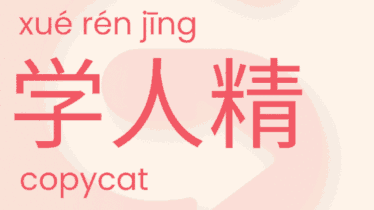What Does “Mei Da Mei Xiao” (没大没小) Mean in Chinese?
In Chinese, “Mei Da Mei Xiao” (没大没小) is an idiomatic expression that means “impolite, cheeky, impudent.” It describes someone who acts inappropriately without regard for social etiquette or hierarchy.
Examples of Using “Mei Da Mei Xiao”
Here are some real-life dialogues demonstrating how to use “Mei Da Mei Xiao”:
Mary: 我们的新同事对老板没大没小,经常顶嘴。
Wǒmen de xīn tóngshì duì lǎobǎn méiyǒu dà méiyǒu xiǎo, jīngcháng dǐng zuǐ.
Our new colleague is very impudent towards the boss, often talking back.
John: 他还年纪轻,可能不懂规矩。但没有大没有小会招人烦的。
Tā hái niánjì qīng, kěnéng bù dǒng guīju. Dàn méiyǒu dà méiyǒu xiǎo huì zhāo rén fán de.
He’s still young and may not understand the rules. But being so impolite will annoy people.
Mary: 是啊,他应该学着尊重长辈,不要没大没小。
Shì a, tā yīnggāi xuézhe zūnzhòng zhǎngbèi, bùyào méiyǒu dà méiyǒu xiǎo.
Yes, he should learn to respect his elders, and not act so rudely.
FAQ about “Mei Da Mei Xiao”
What does “没大没小” literally mean?
The literal meaning is “no big no small.” It combines “没” (méi) meaning “no/not have” with “大” (dà) “big” and “小” (xiǎo) “small.”
When would you use this phrase?
You use it when someone acts inappropriately and disregards social status/hierarchy, showing a lack of manners.
What are some synonyms?
Some words with similar meanings:
- 无礼 (wúlǐ) – impolite, rude
- 厚颜无耻 (hòu yán wú chǐ) – shameless
Could you give an example?
A young employee challenges the company CEO directly without following proper protocol. Their manager might say “他对董事长没大没小” meaning “he is so impudent towards the chairman.”
Don’t miss out on expanding your knowledge – visit our Chinese learning resource page!
Immerse yourself in an unforgettable learning experience! – Book a Trial Chinese Learning Class
Related reading: How long does it to take to learn mandarin chinese?



